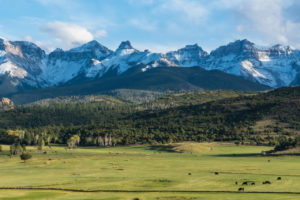The ACLU sued Arizona over the state’s revenge porn law. Why? Possible First Amendment problems. Could the statute be better worded? Absolutely. Is the ACLU overlooking built-in provisions that will likely prevent the worst-case-scenario examples used in their claim? Arguably, yes.
Arizona recently passed a revenge porn law. Good, right? Well, yes; but, many people are worried that the statute could be used to censor art and photojournalism.
The ACLU, in conjunction with a group of booksellers and stores, sued the state, arguing that Arizona’s revenge porn law is in conflict with the First Amendment. The case, Antigone Books v. Horne, could significantly impact the wording of revenge porn bills moving forward.
Is it a valid case? Is the ACLU making a mountain out of a mole hill?
If Arizona’s revenge porn law remains untouched, the ACLU warns of the following (via this Forbes.com article):
- A college professor in Arizona, giving a lecture on the history of the Vietnam War, projects on a screen the iconic Pulitzer Prize-winning photograph, “Napalm Girl,” which shows a girl, unclothed, running in horror from her village.
- A newspaper and magazine vendor in Arizona offering to sell a magazine which contains images of the abuse of unclothed prisoners at Abu Ghraib.
- An educator in Arizona using images, taken from the Internet, of breast-feeding mothers, in an education program for pregnant women.
- A library in Arizona providing computers with Internet access to its patrons and, because no filters could effectively prevent this result, the library patrons are able to access nude or sexual images.
- A mother in Arizona sharing with her sister, in the privacy of her home, a nude image of her infant child.
- A sexual assault victim in Arizona showing a photograph of the naked assaulter to her mother.
A National Law Journal Opinion
In a National Law Journal article, Michael Bamberger explains his problem with Arizona’s revenge porn law:
In its broadest sense, this is a supposed revenge-porn statute that does not require revenge. There is no intent requirement, and it covers far more than porn. That’s why it concerns booksellers, publishers, etc.
The statute also has problems with vagueness. There’s an exception for photos taken in a commercial or public setting. It’s not clear what that means [and] the bookseller might not have a way of knowing the circumstances of how the photo was taken.
But here’s the rub: the Arizona law makes exceptions for “images involving voluntary exposure in a public or commercial setting.” Theoretically, though, it’s still not an air-tight provision, and it could lead to censorship. To wit: soldiers could argue “lack of consent” if their images appear in a “leaked government image of a graphic nature” (think Guantanamo Bay scandal).
Antigone Books v. Horne is a curious case, and to be honest, we don’t have a dog in this race. Both sides have compelling arguments. That said, as an Arizona-based law firm that handles revenge porn, we’ll be tracking it.
Connect With An Online Reputation Consultant
If you are dealing with a revenge porn , get in touch with Kelly / Warner Law. We’ve helped hundreds of women and men get their pictures taken offline. Reach out today to begin the conversation.


Leave a Reply
Your email is safe with us.